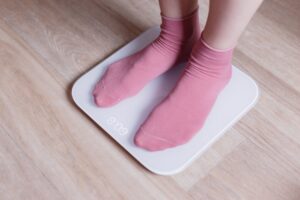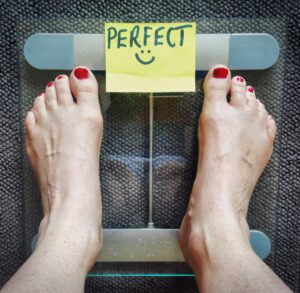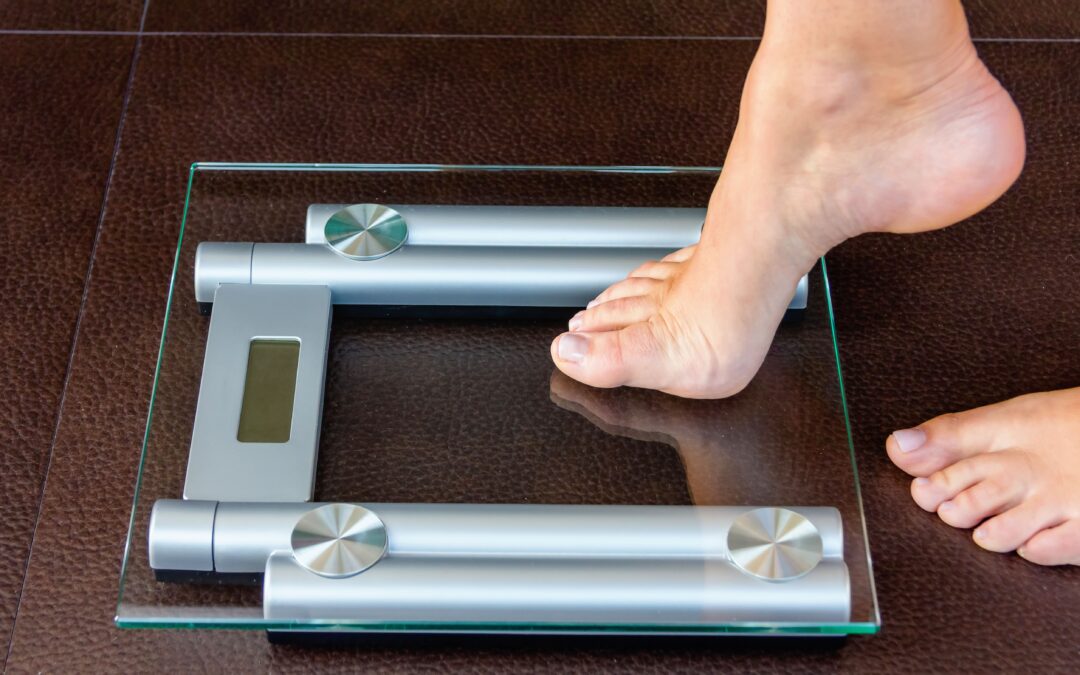When you’re looking to create better health check-ins for your body, weighing yourself should be on the list. It’s a simple, easy way to understand your body better and how external factors like diet & exercise affect your overall weight loss & wellness goals. A health aspect of anyone’s personal check-ups should include measuring your weight to look for any odd fluctuations of which can be a sign of other issues or an indicator that current weight loss strategies aren’t yielding results.
It can be a hassle learning how to turn this health monitoring into a healthy, consistent habit that’s also effective. But performing a habitual monitoring of your weight is an easy way to make sure your body is healthy; tracking weight is one of the easiest methods to help you get started and get motivated when trying to lose weight. By creating a habit of weighing in consistently not only can you better track weight loss and wellness progress, but seeing actual change boosts motivation to keep you on track towards ultimate health and wellness goals!
We’ll go over why you should weigh yourself consistently, when you should weigh in, how often to weigh in, and what kind of devices you can use to weigh yourself to make sure you’re staying happy and healthy.
Why Should You Weigh Yourself Consistently?
There’s tons of research-backed reasons to want to weigh yourself consistently, whether you’re looking to lose weight or not. As with many other forms of personal health check-ins, weighing in at least once a week can help you make sure you’re maintaining a normal weight for yourself. Odd fluctuations in your weight can be an indicator of a larger health problem, such as disease, improper diets, poor sleep, stress, and more.
An important thing to remember is that weight isn’t about how you physically look. It’s finding reactions to the unhealthy, unnatural, or foreign issues we can become susceptible to and creating plans to better ourselves for our bodies.
Creating a habit out of weighing yourself can both make it easier to remember and more purposeful. Many people subscribe to weighing in once a day for weight loss results. However, if you’re weighing in as a health check-in, you’ll most likely be fine creating a habit of weighing yourself once a week. Any substantial changes to your weight within that week, for example, gaining 35 pounds in a few days, will most likely be noticeable without the need to weigh yourself so rigorously as to do it daily.
Weighing yourself isn’t about hitting a target weight; it’s about maintaining your body’s ideal weight, searching for reasons why it fluctuates, and developing healthy habits to maintain your body in a positive way.
Best Time to Weigh Yourself?
When people begin to weigh themselves habitually, creating a time to always weigh yourself can help better create a habit. If you’re doing it weekly, picking one day to always weigh in can make it easier to remember to weigh yourself. But whether you’re doing it daily or weekly, you should always try and weigh yourself around the same time.
Lauren O’Connor, registered dietitian and owner of Nutri Savvy Health, says that morning weigh-ins are best. She mentions that in the morning is when you’re weighing the most of just yourself and not anything that you’ve had to eat or drink. Sleep also acts as a natural way to fast for a few hours, meaning that what you weigh in the morning is the most accurate and the number you should go off of when measuring daily, weekly, monthly progress.
What Way Should You Weigh-in?

Whatever way you weigh yourself, you should weigh yourself the same each time. If you weigh yourself after a shower, you should keep weighing yourself after you shower. Don’t do it before. Keeping as much similar to make sure you’re weighing the same scenario. If you’re clothed, keep weighing yourself clothed. If you do it naked, keep doing it naked. Consistency is key to being able to best notice fluctuations in your health.
If you weigh yourself one week with clothes on and another with clothes off, how can you tell if the weight you lost was just your clothes? And if you show a weight gain after removing the clothes, how much more weight could you have actually gained? Creating a consistent weigh-in schedule, including what you wear while you weigh yourself, can be key to keeping your weigh-ins honest and trustworthy.
As well, whether you use an old-fashion scale or a smart scale can make a difference.
Typical versus Smart Scales
With most ordinary objects becoming smart, it makes sense that scale would end up the same way. But is it worth the investment?
 The key difference with a smart scale is contextualization. A regular scale can only tell you what you way, not how you weigh-in. Smart scales measure so much more than just weight. Smart scales have the ability to measure body composition, including muscle and body fat percentages. Some can even calculate bone mass and water percentage, too. These numbers are most likely not perfect; however, it can give you a decent enough projection of how you body is growing and what it’s made out of.
The key difference with a smart scale is contextualization. A regular scale can only tell you what you way, not how you weigh-in. Smart scales measure so much more than just weight. Smart scales have the ability to measure body composition, including muscle and body fat percentages. Some can even calculate bone mass and water percentage, too. These numbers are most likely not perfect; however, it can give you a decent enough projection of how you body is growing and what it’s made out of.
Let’s say you’re working out more and your weight doesn’t seem to be changing. A smart scale can tell you that your body is changing, even if your weight isn’t. Muscle weighs more than fat, and so gaining more muscle might mean that you’ll end up gaining weight. A typical scale won’t tell you this; you’d have to put together the context clues yourself. A smart scale will tell you if the healthy habits you’re forming are working.
They’re also quite simple. Other than usually connecting your smart scale to an app or online account, you can step on it just like with a normal scale. Smart scales will also track your weight and body composition statistics through their own program, so you can easily track what your body is up to.
Smart scales are more expensive; you’re looking at $40-125 for a smart scale compared to about $18 for a typical scale, along with needing the other technology to support it. But the investment can be well worth it if you’re looking to learn more about what your body is like and how the changes you make in your life affect it past just your weight.
Worth Your Weight In Gold
Weighing yourself is an important health check-in. Just like examining other aspects of our health like breast lump, skin, and testicle lump checks, weight checks can be an indicator of health issues. Creating healthy ways to make a habit of weighing yourself can help promote positive body health, as well as being a great way to understand your body best. Everyone’s body is different, and figuring out what’s best for you can help you make positive changes in your life.

